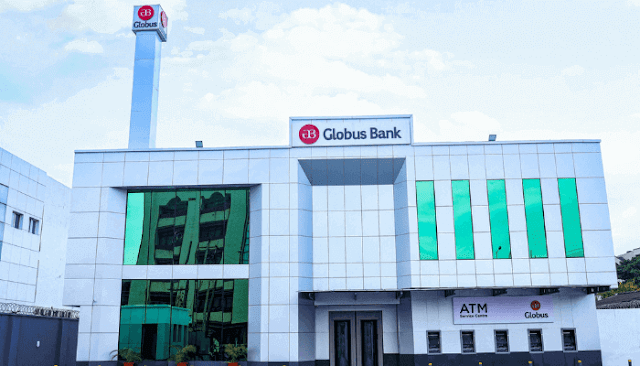In a significant milestone for Nigeria’s financial sector, Globus Bank Limited has received upgraded credit ratings from two leading agencies, Agusto & Co. and Global Credit Ratings (GCR), solidifying its position as a robust and forward-thinking institution. The upgrades, announced in late August 2025, highlight the bank’s strong financial foundations, prudent risk management, and unwavering commitment to sustainable growth. Agusto & Co. elevated Globus Bank’s Investment Grade rating from “A-” to “A” and assigned an Environmental, Social, and Governance (ESG) score of 3, while GCR raised its rating from “BBB-(NG)” to “BBB(NG)” with a Stable Outlook. These endorsements underscore the bank’s operational excellence, strategic execution, and growing influence in Nigeria’s competitive banking landscape. As Globus Bank continues to carve out a niche as a trusted financial partner, these ratings signal a bright future for the institution and its stakeholders.
A Dual Endorsement of Financial Resilience
The upgraded ratings from Agusto & Co. and GCR reflect Globus Bank’s emergence as a formidable player in Nigeria’s banking sector since its inception in 2019. Agusto & Co., a leading Nigerian credit rating agency, upgraded the bank’s long-term rating from “A-” to “A,” accompanied by a Short-Term Rating of “A1,” the highest possible score for short-term creditworthiness. The agency cited Globus Bank’s strong asset quality, underpinned by a conservative approach to credit risk, as a key driver of the upgrade. Additionally, Agusto & Co. highlighted the bank’s robust shareholder support, healthy capitalization, sound liquidity, and consistent profitability as critical strengths that position it for sustained growth.
The agency also assigned Globus Bank an ESG score of 3, indicating that environmental, social, and governance factors are material to the bank’s credit profile. This score reflects Globus Bank’s commitment to integrating sustainable practices into its operations, a growing priority for financial institutions worldwide. By balancing profitability with social and environmental responsibility, the bank is aligning itself with global trends that emphasize sustainability as a core component of corporate strategy.
Global Credit Ratings, a prominent African rating agency, echoed Agusto & Co.’s positive assessment, upgrading Globus Bank’s rating from “BBB-(NG)” to “BBB(NG)” with a Stable Outlook. GCR’s upgrade was driven by several factors, including the bank’s strengthened competitive positioning, improved earnings performance, enhanced capital buffers, and sound asset quality. The Stable Outlook signals confidence in Globus Bank’s ability to sustain its growth trajectory while maintaining strong governance and disciplined risk management practices. Together, these upgrades paint a picture of a bank that is not only financially sound but also strategically poised to navigate Nigeria’s dynamic economic landscape.
Leadership’s Response: A Vision for Excellence
Commenting on the ratings upgrades, Globus Bank’s Managing Director and CEO, Mr. Elias Igbinakenzua, expressed pride in the recognition and reaffirmed the bank’s commitment to delivering value to its stakeholders. “We are delighted by the recent credit rating upgrades from leading agencies Agusto & Co. and GCR,” Igbinakenzua said in a statement. “These ratings reflect the disciplined execution of our strategy and the strength of our brand promise to deliver superior value to all stakeholders.”
Igbinakenzua emphasized that the upgrades are a testament to the bank’s focus on operational excellence, prudent risk management, and organic growth since its establishment. “Since our inception, we have prioritized excellence in core operations, building strong corporate relationships, maintaining prudent risk practices, and growing organically,” he noted. “This recognition underscores our sound governance, capital strength, and consistent performance. With these enhanced ratings, we are well placed to deepen stakeholder trust and accelerate our journey towards becoming Nigeria’s most preferred financial services provider.”
The CEO’s remarks highlight the strategic vision that has guided Globus Bank’s rapid ascent in Nigeria’s banking sector. By focusing on core banking operations, fostering strong relationships with corporate clients, and maintaining a disciplined approach to risk, the bank has built a solid foundation for long-term success. The ratings upgrades serve as a validation of this strategy, positioning Globus Bank as a trusted partner for individuals, businesses, and investors.
A Conservative Approach to Credit Risk
One of the key factors cited by both Agusto & Co. and GCR is Globus Bank’s conservative approach to credit risk, which has resulted in strong asset quality. In Nigeria’s banking sector, where non-performing loans (NPLs) have historically been a challenge, Globus Bank’s low NPL ratio stands out. The bank’s rigorous credit assessment processes and proactive risk management strategies have minimized exposure to bad loans, ensuring that its loan portfolio remains healthy even in a volatile economic environment.
This conservative approach is particularly significant given Nigeria’s macroeconomic challenges in 2025. High inflation, currency depreciation, and elevated interest rates have put pressure on businesses and consumers, increasing the risk of loan defaults across the sector. Globus Bank’s ability to maintain strong asset quality in this context reflects its disciplined underwriting standards and effective risk monitoring systems. By prioritizing quality over quantity in its lending activities, the bank has insulated itself from the volatility that has affected some of its peers.
Robust Capitalization and Liquidity
Both rating agencies also highlighted Globus Bank’s healthy capitalization and sound liquidity as key strengths. Capital adequacy is a critical metric for banks, ensuring they have sufficient reserves to absorb losses and support growth. Globus Bank’s strong capital buffers, bolstered by robust shareholder support, provide a cushion against economic shocks and enable the bank to pursue expansion opportunities. This financial resilience is particularly important in Nigeria, where economic uncertainties such as oil price fluctuations and foreign exchange constraints can impact banking operations.
Liquidity, another cornerstone of Globus Bank’s financial health, ensures that the bank can meet its short-term obligations and fund customer withdrawals without strain. Agusto & Co.’s “A1” Short-Term Rating underscores the bank’s ability to maintain ample liquidity, a critical factor in building customer and investor confidence. In a market where liquidity challenges have occasionally disrupted banking operations, Globus Bank’s strong liquidity position sets it apart as a reliable institution.
Consistent Profitability and Competitive Positioning
Globus Bank’s consistent profitability was another key factor in the ratings upgrades. Despite operating in a competitive and challenging market, the bank has delivered steady earnings growth, driven by its focus on core banking activities and strategic expansion. GCR noted the bank’s improved earnings performance, which has been supported by diversified revenue streams, including interest income from loans and fees from transactional services. This financial stability has enabled Globus Bank to reinvest in its operations, enhance its technological infrastructure, and expand its customer base.
The bank’s strengthened competitive positioning, as highlighted by GCR, reflects its ability to carve out a niche in Nigeria’s crowded banking sector. With over 20 commercial banks operating in the country, competition for market share is fierce. Globus Bank has differentiated itself through its customer-centric approach, innovative product offerings, and strong corporate banking relationships. By targeting small and medium-sized enterprises (SMEs), retail customers, and corporate clients, the bank has built a diverse client base that supports its growth ambitions.
ESG Integration: A Commitment to Sustainability
Agusto & Co.’s assignment of an ESG score of 3 to Globus Bank signals the institution’s commitment to integrating environmental, social, and governance factors into its operations. In recent years, ESG considerations have become increasingly important for financial institutions worldwide, as stakeholders demand greater accountability on issues such as climate change, social inclusion, and corporate governance. Globus Bank’s ESG score reflects its efforts to align with these global trends, incorporating sustainable practices into its business model.
On the environmental front, the bank has taken steps to reduce its carbon footprint and support eco-friendly initiatives. This includes financing projects that promote renewable energy and sustainable agriculture, which are critical to Nigeria’s economic diversification efforts. Socially, Globus Bank has prioritized financial inclusion, expanding access to banking services for underserved communities through digital platforms and agent banking networks. In terms of governance, the bank’s strong board oversight, transparent reporting, and adherence to regulatory standards have earned it praise from rating agencies and regulators alike.
The integration of ESG principles not only enhances Globus Bank’s credit profile but also positions it as a leader in sustainable banking in Nigeria. As global investors increasingly prioritize ESG-compliant institutions, the bank’s focus on sustainability could attract foreign capital and partnerships, further strengthening its financial position.
The Broader Context: Nigeria’s Banking Sector in 2025
The ratings upgrades for Globus Bank come at a pivotal moment for Nigeria’s banking sector. The industry is navigating a complex economic environment characterized by high inflation, currency volatility, and regulatory changes. The Central Bank of Nigeria (CBN) has implemented aggressive monetary policies to curb inflation, which stood at over 30 percent in mid-2025, while also promoting financial inclusion through initiatives like the eNaira and the migration to the ISO 20022 messaging standard. These reforms have created both opportunities and challenges for banks, which must balance profitability with compliance in a rapidly evolving landscape.
Globus Bank’s ability to thrive in this environment reflects its strategic foresight and operational discipline. The bank’s focus on digital banking, for instance, aligns with Nigeria’s shift toward a cashless economy, driven by the growth of fintech platforms and mobile money services. By investing in technology and expanding its digital offerings, Globus Bank is well-positioned to capture a share of Nigeria’s burgeoning digital payments market, which is expected to grow significantly in the coming years.
The bank’s emphasis on SMEs also aligns with Nigeria’s economic priorities, as small businesses are a key driver of job creation and economic growth. By providing tailored financing solutions for SMEs, Globus Bank is contributing to the government’s efforts to diversify the economy away from oil dependency. This strategic focus, combined with the bank’s strong financial metrics, positions it as a leader in Nigeria’s banking sector.
Challenges and Opportunities Ahead
While the ratings upgrades are a cause for celebration, Globus Bank faces several challenges as it seeks to build on its success. The competitive nature of Nigeria’s banking sector requires continuous innovation to stay ahead of rivals. Established banks like Zenith, GTBank, and Access Bank dominate the market, while fintech disruptors like OPay and PalmPay are capturing a growing share of the digital payments space. Globus Bank will need to continue investing in technology and customer service to maintain its competitive edge.
Macroeconomic challenges, such as inflation and currency depreciation, also pose risks to the bank’s operations. While its strong capital buffers and liquidity provide a cushion, sustained economic volatility could impact loan repayment rates and profitability. Additionally, the CBN’s stringent regulatory requirements, including the upcoming ISO 20022 migration and geo-tagging of payment terminals, will require significant investment in compliance and infrastructure.
Despite these challenges, the ratings upgrades present significant opportunities for Globus Bank. The enhanced credit ratings will lower the bank’s borrowing costs, enabling it to access capital markets on more favorable terms. This could support further expansion, including the opening of new branches, investment in digital platforms, and the development of new financial products. The Stable Outlook from GCR also signals confidence in the bank’s ability to sustain its growth, providing a strong foundation for future success.
A Vision for the Future
Globus Bank’s upgraded credit ratings from Agusto & Co. and GCR are more than just a recognition of its financial strength; they are a testament to its strategic vision and commitment to excellence. Under the leadership of CEO Elias Igbinakenzua, the bank has charted a path of disciplined growth, balancing profitability with sustainability and innovation. The ratings affirm the bank’s operational strategy, effective leadership, and dedication to creating long-term value for its stakeholders.
As Nigeria’s banking sector continues to evolve, Globus Bank is well-positioned to capitalize on emerging opportunities. Its focus on digital banking, SME financing, and ESG integration aligns with the country’s economic priorities and global trends. By deepening stakeholder trust and accelerating its growth, Globus Bank aims to fulfill its ambition of becoming Nigeria’s most preferred financial services provider.
The road ahead will not be without challenges, but with strong governance, robust financial metrics, and a clear strategic vision, Globus Bank is poised to play a leading role in shaping Nigeria’s financial future. As the bank celebrates its ratings upgrades, it stands as a beacon of resilience and innovation in a dynamic and competitive market.







